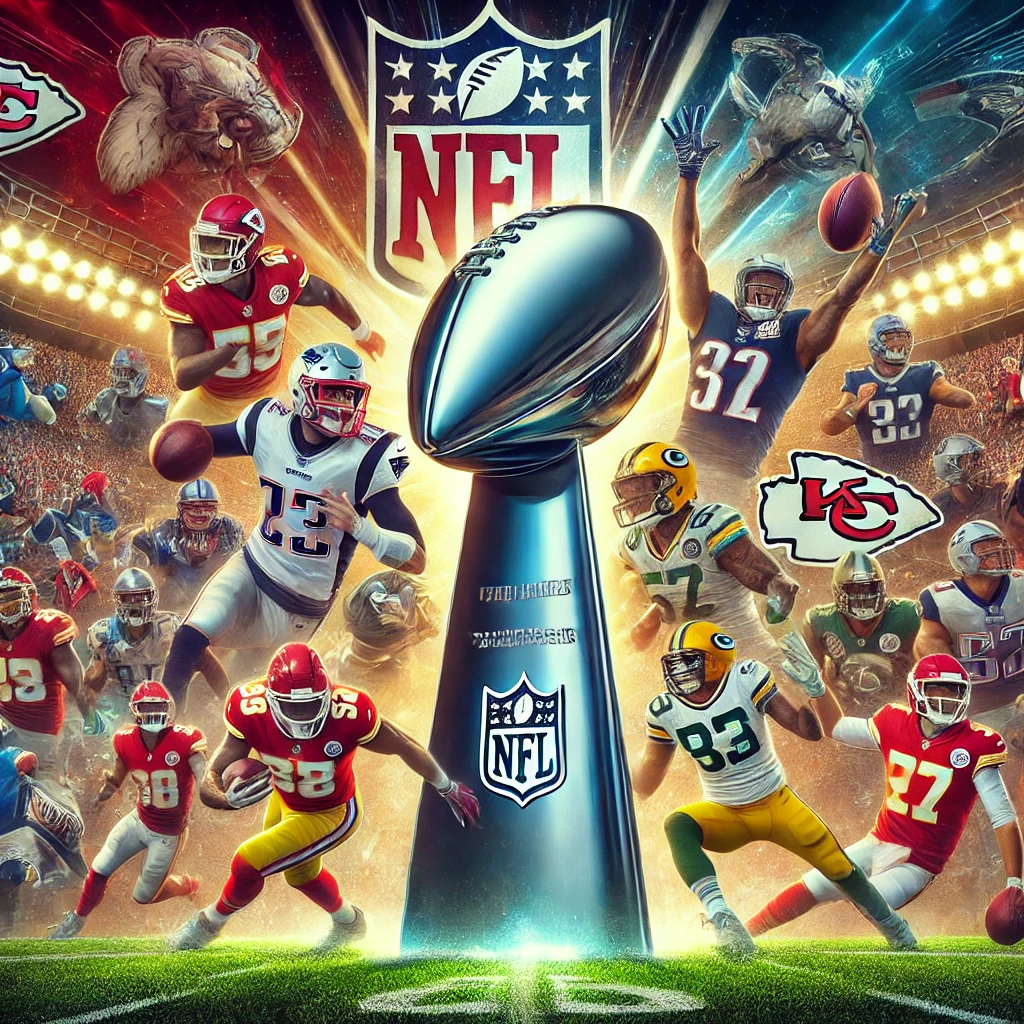How Does an NFL Season Unfold? A Complete Breakdown

The NFL season is more than just a collection of football games; it’s a meticulously planned journey that builds excitement, drama, and ultimate competition. For fans, understanding how the season works helps enhance the viewing experience. In this guide, we’ll dive deep into the NFL’s season structure, breaking it down from the preseason to the Super Bowl. Whether you’re a seasoned fan or new to the game, this comprehensive look at the NFL season will give you insight into the league’s operation and what makes it the most-watched sport in America.
1. The NFL Offseason: Building for Success
The NFL offseason is crucial for teams and fans alike. This period starts right after the Super Bowl and is the foundation for the upcoming season. Here’s what happens during the offseason:
- NFL Draft: In late April, NFL teams select top prospects from the college ranks. This event can shape a team’s future and is highly anticipated by fans and analysts.
- Free Agency: Starting in March, free agents are signed to new teams. Players with expired contracts negotiate new deals, often shifting the balance of power in the league.
- Training Camps: Late July marks the beginning of training camp, where players return to the field to prepare for the season. Coaches test different combinations and strategies while players compete for spots on the team.
2. Preseason Games: Testing and Preparation
In August, the NFL preseason kicks off, lasting about four weeks. During the preseason:
- Rosters Take Shape: Coaches use these games to evaluate players and make final decisions about who will make the team.
- Starters vs. Backups: While starters often play sparingly, backups get significant playing time. These games are crucial for players fighting to earn a roster spot.
- Strategy Tuning: Preseason games allow teams to fine-tune their strategies without risking injury to key players in competitive games.
3. The Regular Season: 18 Weeks of Action
The regular season is the core of the NFL schedule, lasting 18 weeks from September to January. Teams play 17 games, each of which is crucial for playoff qualification. Here’s what you can expect during the regular season:
- Game Days: Most games are played on Sundays, with a featured Thursday night game and Monday night game each week. Occasionally, teams play on Saturdays late in the season.
- Divisions and Conferences: The NFL is divided into two conferences, the AFC and NFC, each with four divisions. Teams play division rivals twice a season, adding to the competitive intensity.
- Home and Away Games: Teams alternate between home and away games, with home-field advantage often making a significant difference in outcomes.
4. The Bye Week: A Strategic Rest Period
Each team has one bye week during the season, where they don’t play a game. This is a critical rest period that allows players to recover from injuries and fatigue. Teams and coaching staff often use the bye week to reassess strategies and make necessary adjustments for the rest of the season.
5. The Race to the Playoffs: Gearing Up for the Big Stage
As the regular season nears its end, the race for the playoffs heats up. Only the best teams in each conference qualify for the playoffs:
- Division Winners: The top team from each division automatically earns a spot in the playoffs.
- Wild Card Teams: In addition to division winners, three wild card teams from each conference (those with the best records outside of division champions) also qualify for the playoffs.
- Playoff Seeding: Teams are ranked based on their regular-season performance. Higher-seeded teams enjoy home-field advantage in the playoffs.
6. The NFL Playoffs: Sudden Death and Glory
The NFL playoffs are a single-elimination tournament, where the stakes couldn’t be higher. Over four weeks, the best teams compete for a spot in the Super Bowl. The playoffs consist of the following stages:
- Wild Card Round: Teams ranked from 3rd to 7th in each conference play against each other. The top two teams get a bye in this round.
- Divisional Round: The winners from the Wild Card Round face the top two teams in their conference.
- Conference Championships: The two best teams from each conference compete, with the winners advancing to the Super Bowl.
7. The Super Bowl: The Ultimate Showdown
The NFL season culminates with the Super Bowl, held in early February. It’s the most-watched sporting event in the U.S., featuring the champions of the AFC and NFC. Teams prepare extensively for this final game, knowing that winning the Super Bowl is the pinnacle of success in professional football. The event is also famous for its halftime show, commercials, and cultural significance.
8. Postseason Awards and Pro Bowl
After the Super Bowl, the NFL honors individual players and coaches with awards such as Most Valuable Player (MVP), Coach of the Year, and Offensive/Defensive Player of the Year. Additionally, selected players participate in the Pro Bowl, the NFL’s all-star game. While the Pro Bowl isn’t as competitive as the Super Bowl, it’s a chance for top players to showcase their skills in a fun and relaxed environment.
9. Key Players to Watch Throughout the Season
The success of an NFL season often hinges on the performances of key players. Whether it’s star quarterbacks like Patrick Mahomes, electrifying receivers like Tyreek Hill, or defensive powerhouses like Aaron Donald, these players elevate their teams with game-changing abilities. Keeping an eye on player health, form, and leadership is essential for understanding how the season will unfold.
10. Fan Engagement: How to Follow and Enjoy the Season
With so many games and storylines, the NFL season offers endless entertainment. Fans can engage with the season through various methods:
- Fantasy Football: Create your own team and compete with friends by drafting players and scoring points based on their real-life performance.
- Game Day Parties: Gather with friends and family to watch games, enjoy good food, and cheer on your favorite team.
- Merchandise and Team Gear: Show support for your team by wearing jerseys, hats, and other gear throughout the season.



